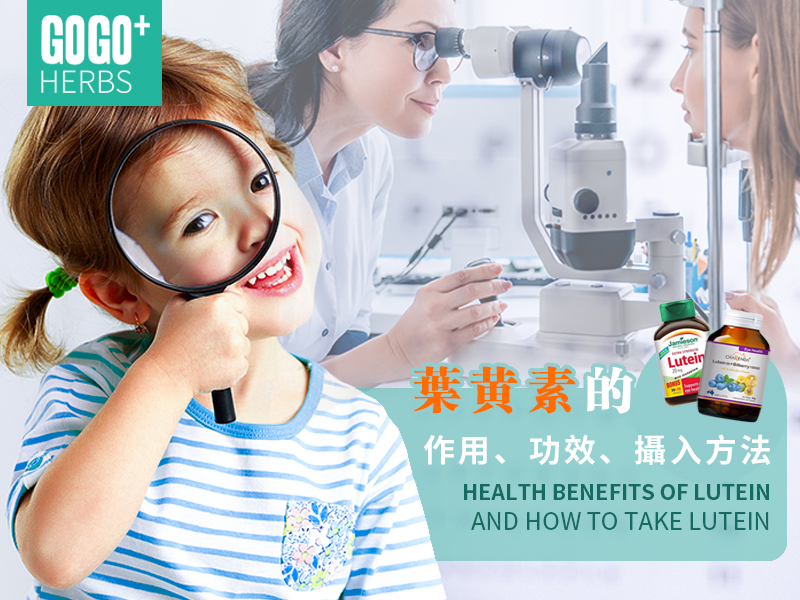
Functions, effects and intake of lutein
Sitting in front of the computer at work, waiting for the car to read the mobile phone, coming home from work to watch TV dramas or read books, and recently even the children have to look at the electronic screen at school, we use our eyes in our daily life for more and more time than we know! Excessive eye use over a long period of time will not only make your eyes dry and uncomfortable, but will also lead to different eye problems. It is difficult to change your eye habits, but we can do so by taking inLuteinTo protect the health of your eyes. In this article, Gogo Herbs nutritionist introduces to you what is lutein, the role of lutein, foods containing lutein and recommended lutein supplements.
What is lutein?
「Lutein"Lutein is a yellow pigment that accumulates in the retina of our eyes and is also a type of carotene, which is also known as "eye vitamin". Lutein is a yellow pigment that accumulates in the retina of our eyes. It is also a type of carotene, and is also known as the "vitamin of the eye". As a pigment in the eye, lutein has the function of filtering light for the eyes, thus protecting the eyes.
Role of Lutein
Lutein has excellent eye protection functions, not only can it enhance the eyes' adaptability in dark environment, improve the recovery of the eyes after being exposed to light, reduce eye fatigue, but also prevent various eye problems when supplemented appropriately.
Lutein Foods
Lutein has a wide range of functions, but it is not produced by the body itself. The biocompatibility of lutein can be found in plants, algae and bacteria, so if you want to consume lutein, you need to eat more lutein foods! Studies have shown that for every 101 TP4T increase in dietary lutein intake, serum lutein concentration increases by 21 TP4T to 41 TP4T:
- Broccoli
- broccoli
- Kale
- sorghum
- cilantro
- kiwi fruit
- wines
- orange juice
- cucurbit
Studies have also found that the nutritional value of lutein is further enhanced when it is consumed with high-fat foods!
Lutein Recommendation
Lutein foods are mostly fruits and vegetables. We understand the importance of a balanced diet, but if you have difficulty incorporating lutein foods into your daily diet, taking a lutein food is a good idea.Lutein SupplementIt is also a good choice! Check out our nutritionist's recommendations for lutein:
- Vita Green – Blue Light Protection (Lutein & Zeaxanthin): Provides high levels of lutein, zeaxanthin and meso-zeaxanthin, which are effective in absorbing sunlight and blue light in the macular region of the eye to protect the retina from damage.
- Charenda – Lutein 30+Blueberry 10,000 Concentrated Tablet (with Kakadu Plum): Combining anthocyanins from blueberry, vitamin C and lutein from Kakadu Plum, it is a highly effective antioxidant that can effectively prevent and improve all kinds of eye diseases.
- Jamieson – Lutein Extra Strength (20mg): Free of starch, artificial colours, flavours, lactose and other allergens, this highly concentrated lutein and zeaxanthin helps to relieve eye fatigue and keep eyesight sharp.


































































